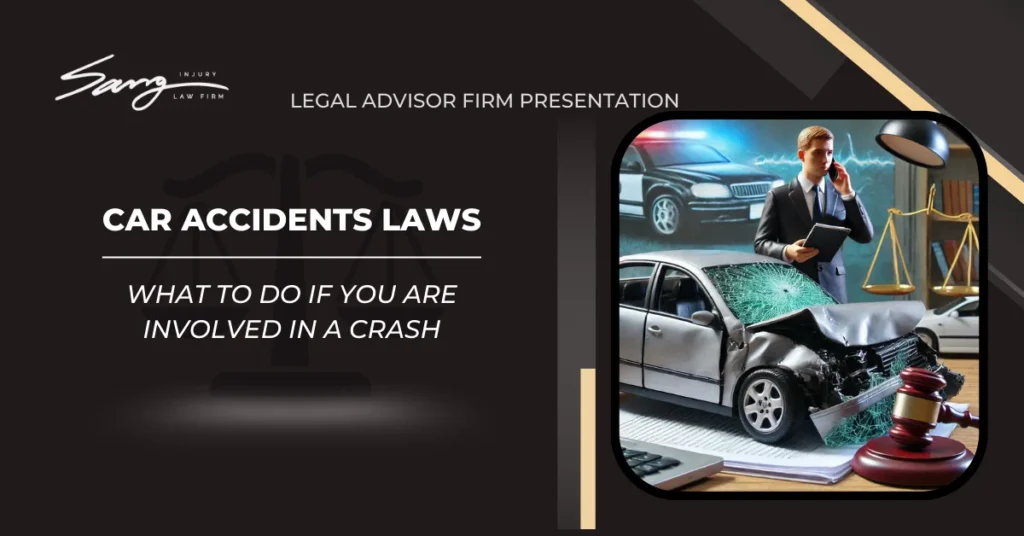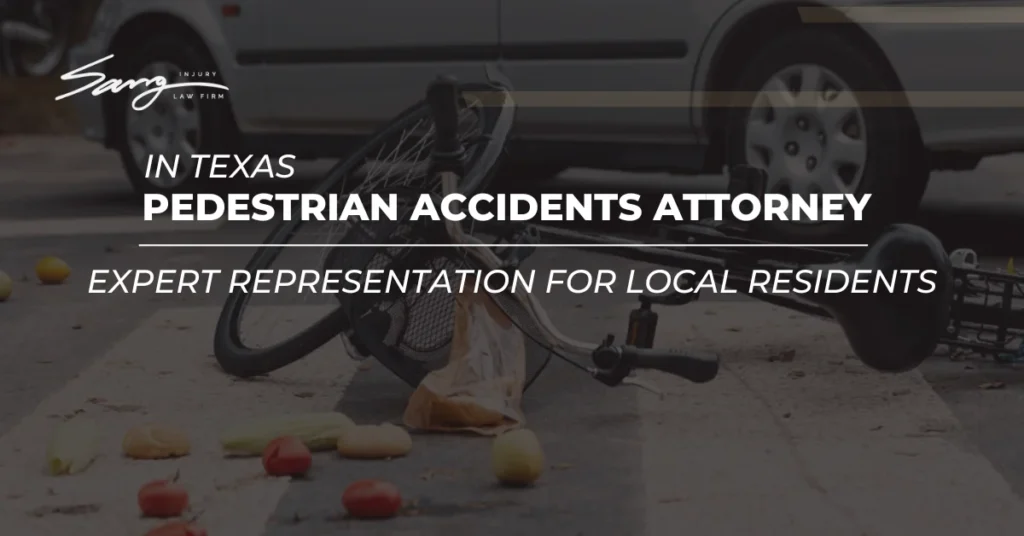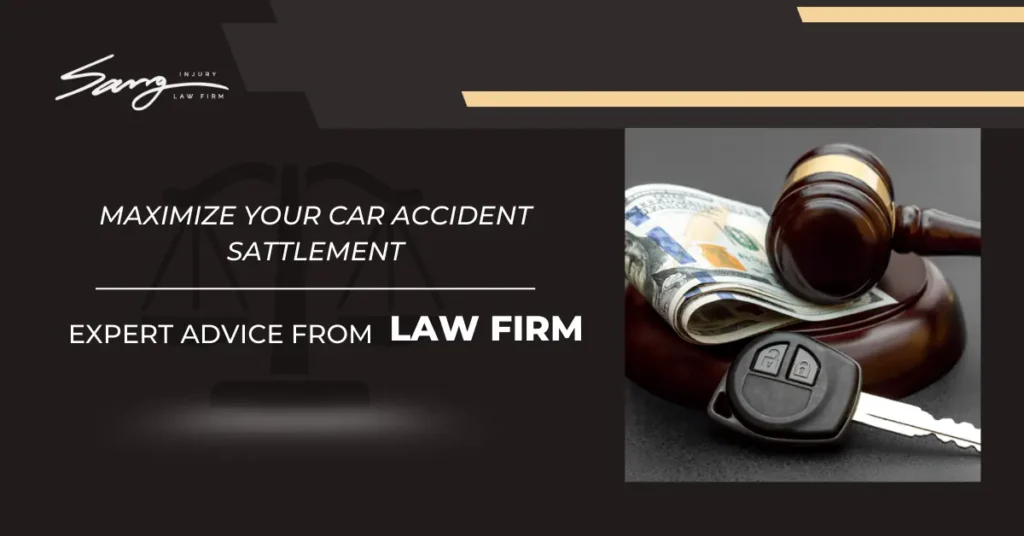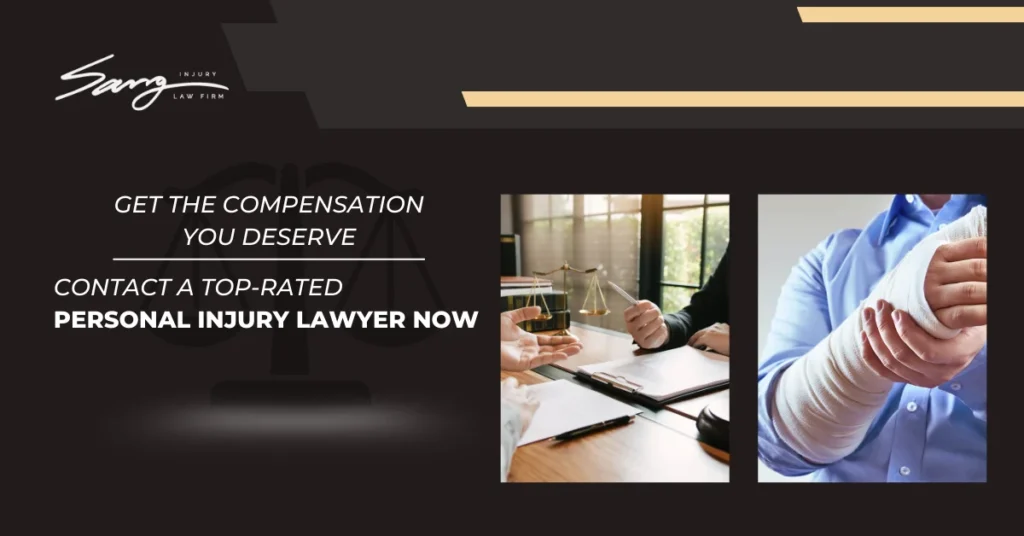Introduction
Being involved in a car accident can be an overwhelming experience, but understanding car accident laws is crucial for anyone navigating this challenging time. This comprehensive guide aims to provide essential knowledge on what steps to take immediately following a crash to protect your legal rights and ensure your safety.
From assessing the situation for immediate dangers to handling the legal complexities that follow, this article outlines critical actions to take post-accident. Whether you’re a victim, a witness, or a law firm professional assisting clients, knowing these steps can make a significant difference in the outcome of any car accident case. This guide serves not only as an educational tool but also as a resource to enhance understanding and readiness in the face of auto accidents, ensuring you are well-prepared to manage the situation effectively under the car accident laws.
Essential Actions to Take Immediately After a Car Accident
Being involved in a car accident can be a disorienting and stressful experience, but taking the right steps immediately afterwards is crucial for your safety, as well as for any legal actions you might need to pursue. Here is a comprehensive guide on how to handle the situation effectively:
- Prioritize Safety: Before anything else, make sure that all parties involved in the accident are safe.
- Check for Injuries: Quickly assess whether anyone is injured and call for medical assistance if necessary. Immediate medical attention can be crucial, even for seemingly minor injuries.
- Move to Safety: If it’s possible and safe to do so, move the vehicles out of traffic to avoid causing further accidents and hazards. This helps prevent additional injuries and complications.
Report the Accident
- Contact Local Authorities: Regardless of the severity, it’s important to call the police to the scene. They will document the accident officially and assess the scene, which is essential for insurance and legal purposes.
- Document Everything: While waiting for the authorities, take the opportunity to photograph the scene from various angles, capturing the positions of vehicles, any visible damages, road conditions, traffic signs, and injuries if applicable. Also, jot down your initial memories of how the accident occurred as these details can be crucial later on.
Exchange Information
- Gather Essential Details: Exchange names, addresses, phone numbers, insurance information, and vehicle details with the other driver(s) involved. If there are passengers or witnesses, consider collecting their information as well.
- Be Mindful of Your Statements: It’s important to manage communications carefully. Avoid admitting fault or making definitive statements about the accident at the scene. These comments can be used in legal contexts later on, potentially complicating the situation.
These immediate actions are not only important for safety and health reasons but also form the foundation of any future claims or legal cases that might arise from the accident. Proper documentation and cautious communication can significantly impact the outcomes of insurance claims and legal procedures. Ensuring that all steps are followed thoroughly can help protect your rights and provide the best chance for a favorable outcome.
Documenting the Accident
Proper documentation of the accident is crucial for any legal action and insurance claims:
- Take Detailed Photos: Capture multiple angles of the crash site, including all vehicles involved, license plates, street signs, and any visible injuries. These photos should document the extent of damage and the context in which the accident occurred.
- Collect Witness Information: Witnesses can provide independent accounts of the accident, which may support your version of events. Obtain contact information and a brief statement from each witness at the scene. This information can be invaluable in establishing the facts during legal or insurance proceedings.
Seeking Medical Attention
Even if no immediate injuries are apparent, it is critical to consult a healthcare professional:
- Medical Records: Visit a healthcare provider as soon as possible. Comprehensive medical records serve as proof of any injuries sustained and are pivotal in personal injury claims.
- Follow Up Treatments: Keep detailed records of all medical appointments, treatments, medications, and related expenses. Consistent documentation of your injuries and treatment can substantiate claims for compensation.
Notifying Your Insurance Company
Prompt communication with your insurance provider is vital for a smooth claims process:
- Report the Accident: Inform your insurer about the accident as soon as possible. Provide a clear and factual account of what happened, sticking to the details without speculating about fault or causes.
- Understand Your Coverage: Familiarize yourself with the specifics of your insurance policy. Knowing what your insurance covers, such as rental car fees, medical expenses, and damage repairs, can help you manage expectations and prepare for potential out-of-pocket costs.
Managing the Claims Process
Navigating the claims process requires attention to detail and timely action:
- Document Communications: Keep a record of all communications with your insurance company, including dates, the names of representatives you speak with, and the details discussed. This documentation can be helpful if there are discrepancies or disputes during the claim process.
- Review Settlement Offers: Before accepting any settlement offers from insurance companies, it is advisable to consult with a legal professional. An experienced attorney can help evaluate whether the offer adequately covers all damages and losses incurred.
By meticulously documenting the accident, securing comprehensive medical records, and effectively communicating with your insurance provider, you can protect your interests and enhance your chances of a favorable outcome. Whether it’s pursuing a claim for damages or negotiating with insurance companies, these steps provide a solid foundation for handling the complex aftermath of a car accident.
Understanding Car Accident Laws
Familiarity with local and state laws governing car accidents is essential for effectively managing the aftermath of an incident:
- Legal Requirements: Become familiar with the laws in your jurisdiction concerning accident reporting, fault determination, and claims processes. Knowing these regulations can significantly influence the management of the incident and its outcome.
- Consult a Lawyer: It is advisable to consult with a car accident lawyer who can provide clarity on your rights and the legal options available. A lawyer can guide you through the complexities of the law and ensure that your rights are protected throughout the process.
Considering Legal Representation
The decision to hire a lawyer should be considered if the accident has resulted in significant damage, injuries, or involves complex legal issues:
- Legal Advice: A knowledgeable car accident lawyer can provide strategic advice tailored to your specific situation. They can offer insights into the most effective ways to proceed with insurance claims or potential litigation.
- Representation: An attorney will represent your interests during negotiations with insurance companies and, if necessary, in court. They are equipped to handle interactions with other parties involved in the accident to ensure your case is presented effectively.
Following Through with Legal and Medical Advice
Post-accident recovery involves a combination of legal and medical steps that should be followed diligently to ensure the best possible outcome:
- Adhere to Medical Treatments: Follow all medical advice and treatment plans prescribed by your healthcare provider. Consistent adherence to treatments not only aids in recovery but also strengthens any claims related to personal injuries.
- Stay Engaged with Your Lawyer: Maintain regular communication with your legal team. Keep them updated on any new developments, and follow their advice closely to ensure that your legal rights are fully exercised.
- Document All Advice and Actions: Keep detailed records of all legal and medical advice received, as well as steps taken in following those recommendations. This documentation can be vital in legal proceedings and insurance negotiations.
Legal and Insurance Considerations
- Monitor Claim Progress: Stay informed about the status of your insurance claims and any legal proceedings. Understanding each step of the process can help you make informed decisions about your case.
- Evaluate Settlement Offers: Before accepting any settlement offers from an insurance company, discuss them with your lawyer. They can help assess whether the settlement adequately covers your damages and losses.
By understanding relevant car accident laws, seeking qualified legal representation, and diligently following all medical and legal advice, you can navigate the aftermath of a car accident more effectively. This comprehensive approach ensures that your health, legal rights, and financial interests are all well-protected, facilitating a smoother recovery process and the pursuit of any necessary compensation.
Conclusion
Being involved in a car accident is a significant and often traumatic event, making it crucial to understand car accident laws to effectively navigate the aftermath. Taking the appropriate steps immediately after the incident, from ensuring the safety of all parties involved to securing the scene and gathering necessary information, lays the foundation for any required legal action.
Consulting with legal professionals promptly can greatly assist in protecting your legal rights and guiding you through the process of dealing with insurance claims or potential litigation. It is important to remember that knowledge of your rights and the laws applicable to your situation, combined with prompt action, are invaluable tools that can help ensure a smoother recovery and the best possible outcome. Whether you are filing insurance claims or preparing for a legal battle, these elements are crucial in managing the repercussions of a car accident effectively.






